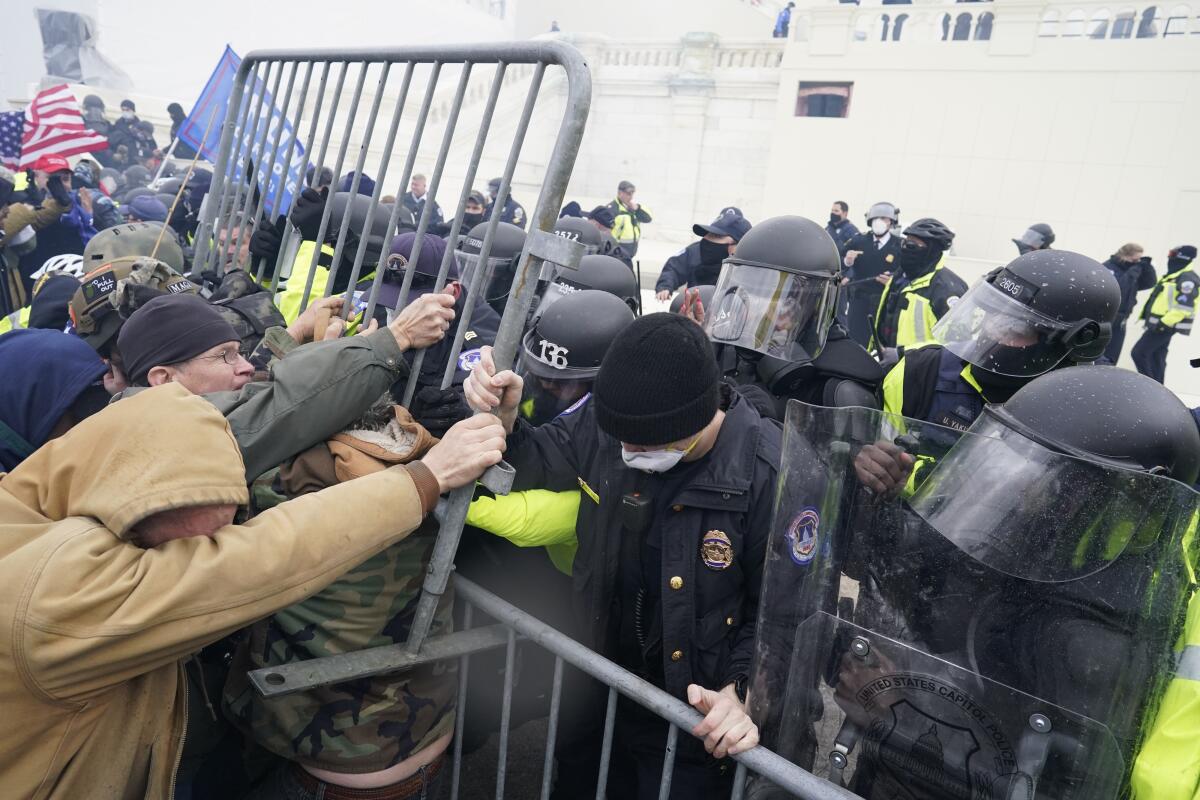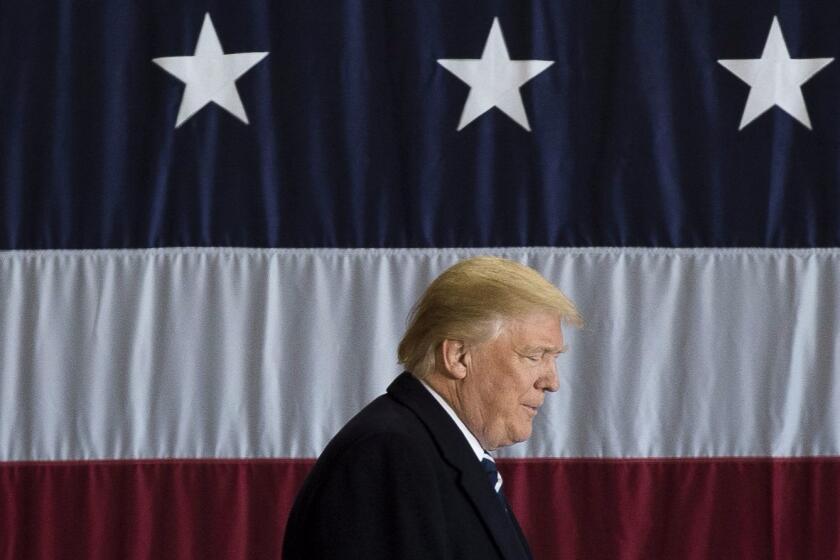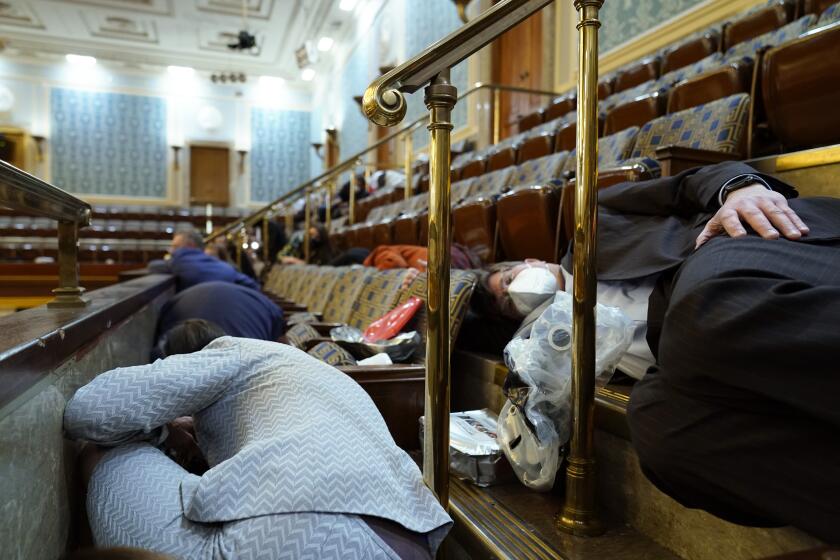Jan. 6 insurrection was the result of a continuing war on truth

- Share via
At first the lies were little, and laughable. The day after his 2017 inauguration, for example, President Trump falsely claimed that the crowd on the National Mall was so large that it extended from the Capitol steps to the Washington Monument. It was untrue, but so what?
But in that lie were ominous hints of what was to come. Trump promptly branded those who reported the facts as the real liars and White House advisor Kellyanne Conway defended Trump’s assertion that the crowd was much larger as simply “alternative facts.” The truth, in this administration, was to be a matter of opinion and not anything verifiable that stood apart from personal interest or political position.
The little lies compounded, and by late November 2020 they had paved the way for the Big Lie: that Trump, rather than being defeated for reelection, actually won, and that any assertion to the contrary was itself a lie and a result of fraud or conspiracy.
Our Dishonest President
It was no secret during the campaign that Donald Trump was a narcissist and a demagogue who used fear and dishonesty to appeal to the worst in American voters.
Perhaps not everyone who stormed the Capitol on Jan. 6, 2021, was conditioned by Trump to believe that truth was falsehood and vice versa. White supremacists, Proud Boys, Oath Keepers, Three Percenters — some of these people probably cared little about how the majority of Americans voted and were there to press their own interests. But the crowd clearly included many who believed, because Trump told them so, that he was the election’s true winner.
The mortal threat the insurrectionists posed — and continue to pose to the nation and to the survival of democracy — had little to do with interrupting the electoral vote count, which resumed once the building was cleared. And while the attack that day led to the deaths of at least three police officers and injured more than 140 others, the greatest danger introduced was the notion that the beliefs of a mob, rather than the verifiable math of the election, might ultimately select the nation’s leaders.
There was a chance that the attack on the Capitol could have been contained as just one horrifying, anomalous day of self-deception or hateful insurgency. But Republicans in Congress and their cheerleaders in the right-wing media have practically made Jan. 6 into their own Fourth of July by embracing the lies not only about the election but about the very existence of the insurrection. Rep. Andrew S. Clyde, a Georgia Republican, for instance, notoriously claimed that the attack on the Capitol was little more than “a normal tourist visit,” multiple horrific videos of the violence notwithstanding.
About a third of Republicans polled now believe the attack on the Capitol wasn’t particularly violent, despite copious evidence to the contrary. And polls suggest that 70% of Republicans believe that the election was stolen from Trump, despite the lack of any evidence supporting this claim.
Trump urged supporters to march on the U.S. Capitol building, where they breached barricades and forced Congress to adjourn. When do we call this an attempted coup?
Liberty and justice cannot survive without truth, and a healthy respect for it. Nor can democracy.
This is something well known to observers of nondemocratic societies. Political philosopher and Holocaust survivor Hannah Arendt, writing in 1951, noted that a despot’s greatest tool is the people’s indifference to the truth.
“The ideal subject of totalitarian rule is not the convinced Nazi or the dedicated Communist,” Arendt wrote, “but people for whom the distinction between fact and fiction (i.e., the reality of experience) and the distinction between true and false (i.e. the standards of thought) no longer exist.”
From the post-insurrection vantage point, the frightening prospect is that Arendt’s observation might apply not only to totalitarian dictatorships like those of the Nazis or the Soviets, but also to corrupted democracies — nations and governments that keep up the appearances of popular sovereignty and run through the motions of free elections, but that have actually been overthrown or subverted by antidemocratic forces.
The real threat of the insurrection lay not so much in the mob that stormed the Capitol, but in the aftermath, in the willingness of so many Americans to follow a comforting, self-justifying Big Lie instead of verifiable facts. The only way to defeat this continuing threat to democracy is to engage in a relentless and vigorous defense of the truth.
More to Read
A cure for the common opinion
Get thought-provoking perspectives with our weekly newsletter.
You may occasionally receive promotional content from the Los Angeles Times.











